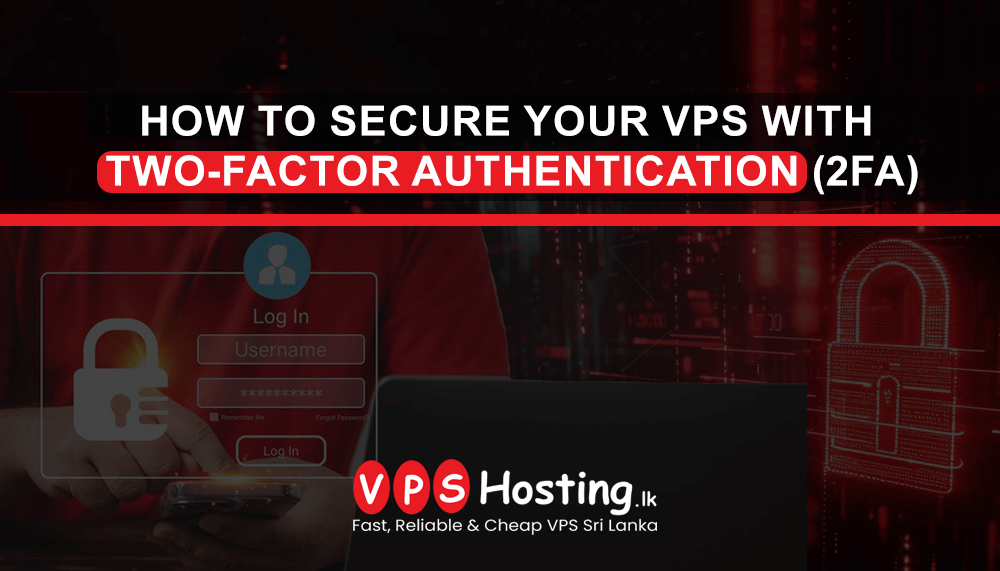
How to Secure Your VPS with Two-Factor Authentication (2FA)
Introduction
Of the important aspects of securing your web footprints and assets online, securing your Virtual Private Server is right there at or near the top. These have become a ripe target for cyberattacks searching for any weak links in their targets' systems. While generally, VPS hosting has provided businesses and websites with scalable resources-powerful resources at that-without proper security measures, it can be at risk of intrusion. One of the efficient ways of improving the security of your VPS is by using two-factor authentication, popularly known as 2FA. In this article, you will walk through the importance of 2FA and how to set this up on your VPS without using third-party applications.
Understanding the Basics of VPS Security
Due to the data that VPS servers often host, they are one of the favorite targets for cybercrime. One of the most common ways that a VPS gets hacked is because of weak passwords, unpatched software, or unsecured points of access. Therefore, securing your VPS should start with its protection, and 2FA is an absolute must-have layer of protection.
What is Two-Factor Authentication (2FA)?
This was very important because two-factor authentication would add another layer of security by requiring not just something that you know, like a password, but also something that you have or are. If the attacker has already compromised your password, this in itself reduces the likelihood that an attacker will gain access to it. Most VPS hosting providers and all major control panels natively support the functionality of 2FA, hence allowing you to easily secure your server without needing any external applications.
Advantages of 2FA for VPS
-
More Protection against unauthorized entry:
-
The moment one employs 2FA, even if some password gets guessed or compromised, one will still have to breach the second layer of authentication. For this reason, this becomes a monumental challenge to penetrate unauthorized access into the inner sanctum.
-
-
Reducing the Risks from Phishing and Keylogging Attacks:
-
Most phishing and keylogging attacks are based on password capture. With 2FA, password theft alone isn't enough to breach your system. It reduces the risks such attacks tend to pose.
-
-
Reduce the chances of a data breach:
-
Data breaches are among the largest risks to doing business in this modern-day world. With 2FA enabled, critical information becomes much more difficult for hackers to breach your VPS.
-
Implementing 2FA on VPS: A Step-by-Step Guide
1. Prerequisites for 2FA Setup
First, your VPS management panel or control panel should be operating on its latest version. Most new versions of control panels have the inbuilt functionality to enable 2FA. Before doing that, ensure that your VPS login credentials are available.
2.How to Enable 2FA for Your VPS Control Panel
Most VPS hosting services out-of-the-box enable an option to turn on 2FA, which might include popular control panels like cPanel, DirectAdmin, or native management interface of your provider. It can be found in a section called "Security" or "Authentication" in most control panels. Here's how you would turn it on in general:
-
-
-
- Go to the "Security" section of your VPS management dashboard.
- Look for the "Two-Factor Authentication" option and click on it.
- Follow the on-screen instructions to set up your second authentication factor, which can be either via SMS or email by means of a token.
-
-
Once enabled, you will be required to provide both your password and the second factor that is sent to your registered device every time you log in.
3. Setup 2FA for SSH Access
Set up 2FA for SSH access for extra security. Many VPS providers natively allow adding one extra step of authentication to access your VPS.
VPS Security Best Practices with 2-Factor Authentication
-
Keep Software and Patches Up to Date
Setting up 2-factor authentication is necessary, but keeping your VPS software updated is equally crucial. Regular updates and security patches help eliminate all the loose ends the attackers will take advantage of.
-
Use Strong Passwords in Combination with 2FA
While the 2FA offers another layer of security, it is always advisable to use strong unique passwords. Combine these best practices for an even more secure setup.
-
Monitoring and Auditing Login Attempts
Most VPS management tools provide logging features to monitor login attempts. This will help in knowing who accesses your server and flag off any suspicious activity.
-
Backups and Data Recovery in Case of Lockout
Recovery options should be made available in the event of losing your second authentication factor. The backup codes or secondary methods-such as email recovery-can serve as alternatives to regain access, and are provided through some VPS control panels.
Possible Problems and Their Solutions
-
2FA Management for Multiple Users
If several users are supposed to have access to your VPS, make sure each of them uses his or her own 2-factor authentication setup. Individual 2FA settings can be configured for different accounts under the same VPS instance.
-
2-factor Token Loss/Replacement
If your 2FA method is ever lost, be sure to have backup methods or recovery codes that can be used. In such a case, you will manage not to get locked out.
Conclusion
VPS security is a very big concern in the setup and maintenance of your online infrastructure. 2FA creates a very important layer of protection for your server against unauthorized access and minimizes the chance of your server being compromised in an attack. Enabling 2FA via your provider's built-in functionality ensures your server is safe without additional tooling. Keep in mind to finish 2FA with other good security practices on the protection of your VPS, such as updates of the used software and strict policy of setting passwords.
